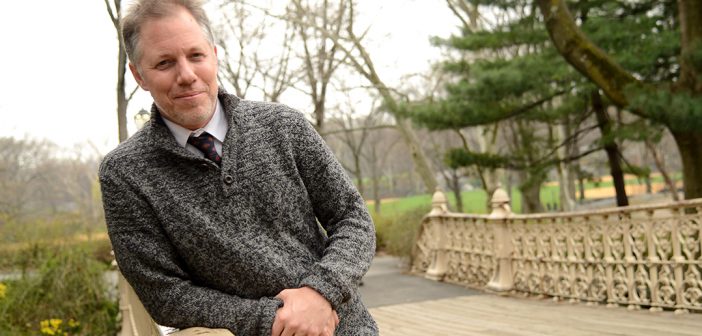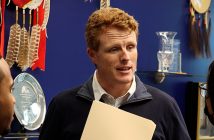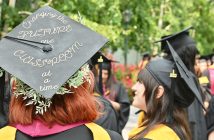In December 2011, the newly formed Republic of South Sudan was in the throes of ethnic violence that left more than 1,000 dead and tens of thousands homeless. A dispute over abducted children, stolen cattle, and ongoing raids had prompted members of the Lou Nuer community to attack members of the Murle community.
Ferdinand von Habsburg-Lothringen had traveled to the region with the country’s vice president to see how the United Nations might help.
“We were right in the middle of this place that had been burned down and was still smoking, with bodies everywhere,” said von Habsburg-Lothringen. “What I saw was so shocking that I have nothing to relate it to.”
Von Habsburg-Lothringen is graduating with a master’s in international humanitarian action from the Institute of International Humanitarian Affairs (IIHA) and the Graduate School of Arts and Sciences (GSAS). His master’s thesis delves into the narratives surrounding the violence he witnessed in South Sudan and how these narratives have affected humanitarian aid and its delivery. He said that working on his thesis became a way to process what he had seen and an attempt to lay down stronger ideas for how to work in such contexts while trying to both prevent and deal with the consequences of such violence.
“This is my way of expressing my outrage at every aspect of it,” he said. “What we in the international community did was not OK. What we didn’t do is not OK, and what people did to each other is not OK.”
Von Habsburg-Lothringen is not new to humanitarian work. He completed a diploma in international humanitarian assistance through the IIHA’s founding nonprofit, the Center for International Humanitarian Cooperation, in 2001. He parlayed this qualification into a career with several humanitarian organizations in Sudan, including two Catholic Church organizations and the UN Development Programme. He is now a consultant for the government of Switzerland in South Sudan to support the Committee for National Healing, Peace, and Reconciliation; the South Sudan Council of Churches; and regional peace talks between the government of South Sudan and rebels. He also works as a consultant with Aegis Trust to support initiatives that help prevent mass atrocities.
Coming back to Fordham for a master’s degree allowed von Habsburg-Lothringen to once again join like-minded colleagues from around the world to openly discuss their experiences. He is the first student to graduate from the humanitarian master’s program, which was begun as a joint venture between IIHA and GSAS in 2011.
His coursework also allowed him to thoroughly analyze South Sudan’s 63 ethnic communities.
But while he is presently immersed in South Sudanese culture (his wife is from the region; together they have four children), his background from a storied European royal family, the von Habsburg-Lothringens, sets him apart—which can at times be helpful.
“I’m an outsider to a country where I’ve lived and worked and settled,” he said. “But because it’s immediately evident that I’m an outsider, it in some ways helps preserve my role as a facilitator and sometimes mediator.”
Von Habsburg-Lothringen said that the problems percolating on the ground before the 2011 massacre are similar to problems seen in troubled areas throughout the globe, and where too many humanitarian efforts overlap. In many ways, he said, “the humanitarian community is also to blame.” Agencies must make an effort to analyze a region before deploying resources, and they must also “take a step back” to get the bearings of the situation.
“You may know UNICEF is working in one area doing something, while in another area the UN is doing something else and the European Union is doing this here and the government is doing that there,” he said. “Taking a step back is the best way to measure what is needed, and where.”
Unfortunately, he said, the pressure from donors is to get results, often in 12-month cycles. And politicians often want aid spent before the next election cycle begins.
“We don’t take enough time to understand the context,”
he said.
“We can do things better, all of us—not just humanitarians, but also the South Sudanese.”



